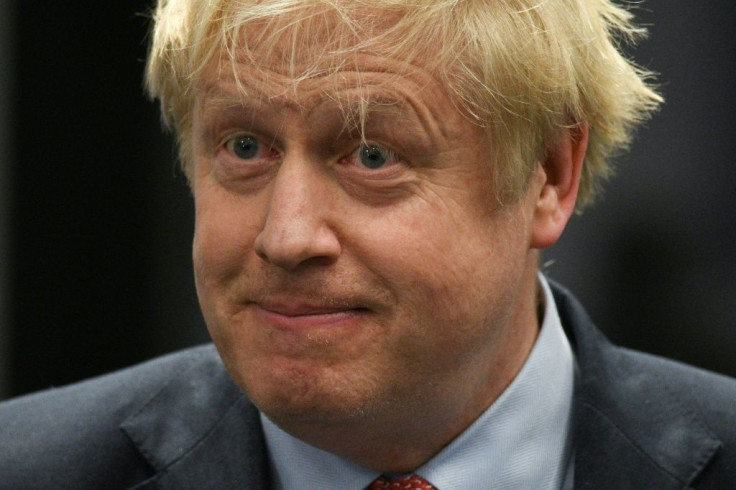Brexit Update: On Britain’s Final Official Day In EU, Some Cheer, Some Mourn

KEY POINTS
- The UK will leave Friday night at 6 p.m. local time
- Britain now has 11 months to hammer out new trade deals with EU
- London Mayor Sadiq Khan mourned Brexit
As the United Kingdom spends its final day as a member of the European Union, some Britons were celebrating Brexit, while others were in mourning.
London Mayor Sadiq Khan says he is “heartbroken” about Britain’s departure from the EU. “I'm of the generation who has seen our European neighbors as friends and allies,” Khan said. “Previous generations looked upon them [Europeans] with suspicion. And the key thing I'm determined to make sure happens is, going forward, we will carry on as a city being open-minded, out-looking, pluralistic and welcoming to our EU friends."
Khan had long voiced opposition to Brexit and rejected the notion that London will now seek to become an unregulated tax haven.
Dominic Buxton, a Liberal Democrat, tweeted: “Today, I’m heartbroken that we’re leaving the most successful peace project in history, built from the rubbles of a war-torn Europe, all in pursuit of isolationist politics.”
Although Britain will officially depart the EU on Friday night, Prime Minister Boris Johnson will steer the country over an 11-month transition period at the end of which he hopes to establish new trade and security agreements with Europe. (EU officials and most Labour members think this timetable is impossible)
Johnson, a longtime Brexit advocate whose successful campaign last year was largely focused on the U.K. leaving the EU, is expected to address the public at about 10 p.m. local time, one hour before the official exit.
Johnson himself tweeted Friday morning: “This government will unite and level up our country. And as we build a new relationship with the EU, I urge everyone to find closure and let the healing begin.”
The Brexit saga has gone on for almost four years and cost the political careers of two former Prime Ministers, David Cameron and Theresa May.
But with a Conservative majority in parliament, Johnson got Brexit passed – albeit with unanimous opposition from Labour.
U.S. President Donald Trump supported Brexit and had called for new trade deals with Britain. U.S. Secretary of State Mike Pompeo endorsed Brexit by tweeting: "The U.K. is a critical ally, and we’ll stand with them all the way.
Meanwhile, the actual mechanics of Britain leaving Europe and forming new deals with the EU remain a daunting challenge.
For one thing, any deal with the EU must be approved by all 27 remaining EU countries. Any one EU member can block an agreement with the UK they don’t like.
“I am yet to meet anybody who thinks a comprehensive trade agreement would be negotiated in 11 months,” Katy Hayward, an academic at Queen’s University Belfast, said.
Sir Simon Fraser, a former permanent secretary and a former chief of staff to the European trade commissioner, warned that: “After Jan. 31, the government will take the line that Brexit is done and what remains to be done is a sort of technical exercise. There’s no way that we are going to achieve by the end of the year a-once-and-for-all comprehensive set of agreements with the EU about our future relationship.”
Joe Owen, an analyst at the Institute for Government, a London-based think tank, said Jan. 31 was important, but only symbolically.
“The follow-on questions about what Brexit means are largely still unanswered,” he said. “We don’t know what our new immigration system will look like; we don’t know what we’ll do with an independent trade policy; we don’t know what we’ll do with agriculture and fisheries; we don’t know what we’ll do with devolution in the UK and the split of power between Westminster and Scotland, Wales and Northern Ireland.”
Fraser further warned: “The reality of international relations is that if you are the U.K. and you’re next to the EU, you’re going to be in a permanent set of ongoing negotiations -- as things change in Europe, you have to adjust to them and you have to decide how you react to new regulations. So, yes, we will be in a permanent ongoing negotiation with them anyway.”
But pro-Brexit businessmen are confident Britain will prosper after leaving Europe.
In response to a pessimistic post-Brexit outlook by the Bank of England, Tim Martin, the founder of the Wetherspoon pub chain, condemned the central bank.
“I just wish they would shut up," he said. "They have been so wrong on everything they’ve said. For example, they and others said just by voting Leave, would by today have lost half a million jobs. Since 2016, we’ve created a million [jobs], so they were wrong by a ginormous amount, and government revenues from tax is at a record high, household income’s at a record high, employment’s at a record high. What [else] do we have to do?”
© Copyright IBTimes 2025. All rights reserved.





















